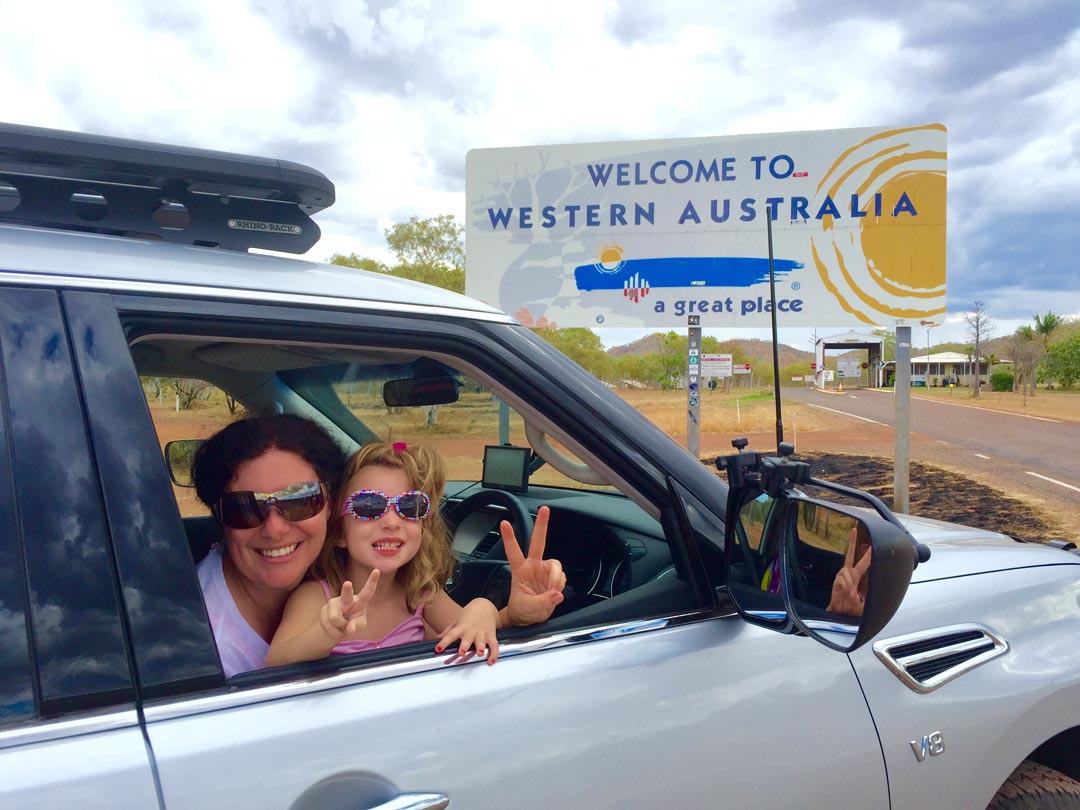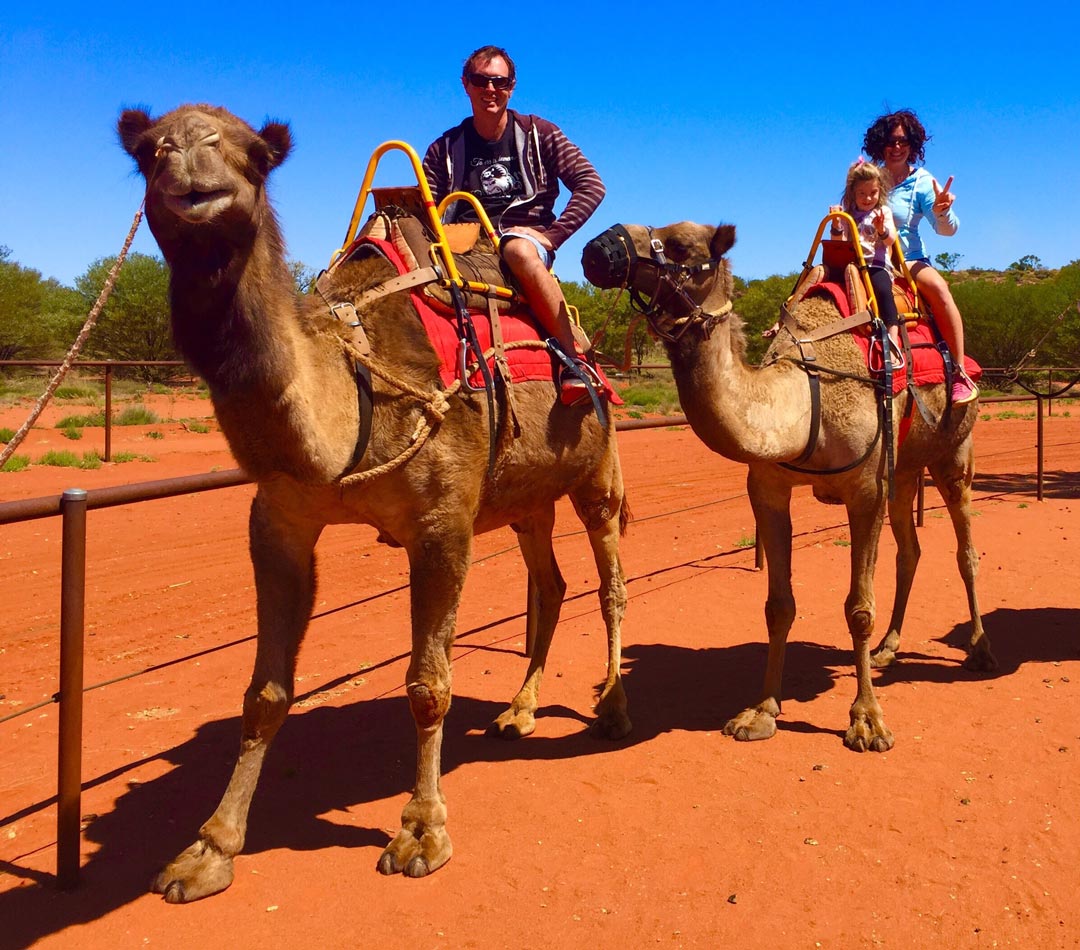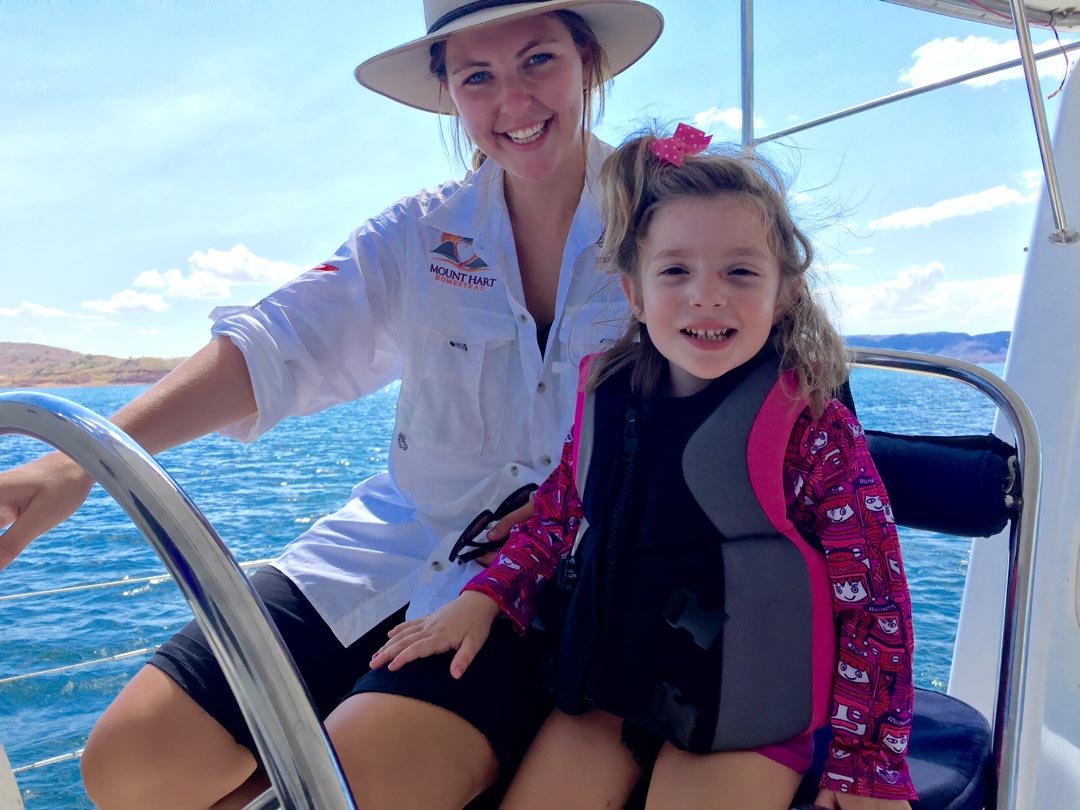Educating Kids on the Road

Many families avoid long-term travel while their kids are young or in school, but Melissa from This Is Our Australia believes more parents should buck the trend and teach their kids while they travel.
Words by Melissa Schembri from This Is Our Australia, a family of three who put their suburban life on hold to pursue their dreams of travelling Australia.
As we travel around Australia with our three-and-a-half year-old daughter Chloe, you would be amazed at how many people say: “great time to travel before she starts school”.
While I understand what they mean, I think that travelling with kids at any age is a great time to do it, and I don’t think school should be a barrier to having one of the greatest experiences of your life.
We have so many friends who say to us, “we would love to travel, but our kids are in high school and it’s too late.” And it may be that there are other factors involved, but if you think that travel is not as good as a classroom, it may be worth considering a new perspective.
A different kind of education
One of my best friends, Nicole, travelled Australia with her parents when she was in year 10, and 20 years later she still claims it was the best year of her life. She said that her trip around Australia taught her so many things, but most importantly inspired her desire to see the rest of the world. Nicole went on to study school teaching and she has taught in international schools all over the world. In her year travelling Australia as a year 10 student, Nicole completed distance education and said she had great incentives to get her work done. Her father would say “we are having a quiet week this week but if you get your work done, we will go skiing at Perisher next week”. To this day, Nicole attributes her great social skills, broader perspective on life and sense of adventure to her year on the road.

In the past 7 months travelling on our Australian adventure, I have witnessed first hand the educational benefits to our daughter Chloe. She has developed the most wonderful social skills and easily strikes up conversations with people of any age. Her confidence and self-esteem have improved greatly; but I guess the biggest blessing we have gained is the time and opportunity to facilitate her desire to learn. She has loads of questions and we have loads of time to answer them. We aren’t bogged down by the time constraints we used to have, and we are constantly presented with new stimuli that encourage her learning and trigger enquiry.
Everyone knows how much children learn on a school excursion, and children that travel are on an excursion every day. There are so many benefits to travelling but to name just a few: it inspires their sense of adventure, shows them how to turn dreams into a reality, pushes them outside their comfort zone, creates numerous opportunities to problem solve, gives them the confidence to make new friends and be flexible, broadens their perspective on life and builds resilience. What I like most, but is probably tough to quantify in test results, is having quality time with the people you love most as you explore, make decisions, overcome challenges together and form a life-long bond. You get the opportunity to really connect with and get to know your children, and they you.
Schooling while you travel
Looking towards formal education for Chloe, I’ve become intensely aware of the current landscape of ‘home schooling’ in the broader sense of the term. These days there are several options for educating kids on the road and it all depends on which state you call home. I am told that NSW and some other states will not allow you to ‘home school’ if you are travelling full time. Therefore you would need to either change your home base or register for distance education or possibly school of the air.

From my understanding, distance education and school of the air offers full support and structure in setting your child’s learning curriculum, and will send out school work for your child to complete. You have a teacher available via phone and internet to support your child’s learning, ensure they have a good understanding of the curriculum and work with you to find a balance between education and travel. I am told by some families that the work load can be too much, but others say that they enjoy it and through consultation with their teacher have the freedom to pick and choose what they complete.
Home schooling enables you to create your own learning plan into which you can incorporate projects on the places you travel. I am told that some families seek the advice of teachers from their old school to help create the learning plan. This is quite a popular method for travelling families who want greater freedom and are happy to design their child’s learning.
I am also told that some schools will give a schooling exemption for a shorter period of time and just request that the child complete a daily travel journal.
Raising kids who love to learn
We are also seeing the rise of some alternative methods of education such as Montessori, Steiner, Self Design and natural/world learning, which fits in well with the idea that children learn a great deal from their experiences and absorb an incredible amount of information when they are interested and engaged.
It is exactly the same with adults, as we too desire to learn when the topic is relevant to ourselves or our present situation. The moment we arrived at Uluru (Ayers Rock), I was completely mesmerized. I wanted to know absolutely everything about it: How did it form? What is it made of? Why are there so many desert flowers? How many people have died climbing it? Suddenly, my desire to learn about this extraordinary place was intoxicating! I’m not normally a big fan of reading about places, but within a few hours I had learned so much about our Country’s history, geology, cultural and spiritual beliefs, tourism, botany, floriculture, zoology and so much more.

My belief is that you learn so much more when you enjoy your learning experience, so keep searching until you find the model that works for you and your family. And remember, just because they are not in a classroom, it doesn’t mean their brain is a dormant shell. I have spoken to so many families whose children have returned to class after a year of travel with so much more confidence, knowledge, intelligence, social skills, resilience and problem solving skills. Travel didn’t hinder their learning, it dramatically enhanced it and they had done very little traditional school work on the road.
And just before I sign off, one final thing that school can’t teach your children is the opportunity to become familiar and comfortable with extended travel. This trip may inspire your child to someday travel the world, or at least have the courage to pack their bags and explore Australia with their own family one day. It always amazed me how Jessica Watson had the courage to sail the world on her own at the age of 16 – that is until I realised that her family had lived on a yacht travelling Australia for many years during her childhood. What a wonderful gift her parents gave her. Wouldn’t you like to give your children a lifetime of memories that school can’t give them?








0 comments